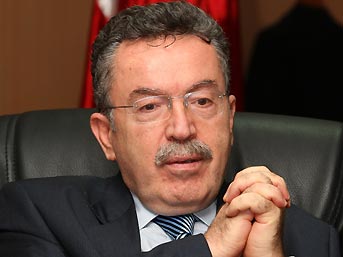
The start of the academic year is always a good time to instill some wisdom and knowledge in the minds of young and impressionable students, which is just what Yusuf Ziya Ozcan, head of Turkey's Higher Board of Education (YOK), tried to do in a recent talk in front of students at Central Turkey's Nevsehir University.
The subject of the talk given by Ozcan (pictured above) -- Turkey's highest-level academic, essentially -- was the importance of Turkey's universities ramping up their own research capabilities. To support his argument, Ozcan brought up the subject of tomato seeds, most of which he claimed are being imported from the United States and Israel, with dire consequences for Turkish eaters.
The seeds of the tomatoes and wheat we grow in Turkey mostly come from abroad, because we don't have enough seeds of our own. They come from the US and Israel. As a Turkish intellectual, sometimes I feel very little.I mean, can't we produce our tomato seeds here in our country?.... And we don't know the consequences either. You're buying these tomato seeds. There is something called 'genetic programming.' They can implant a genetic mechanism into the tomatoes and we can eat it without even knowing. We can be infected with some diseases that we don't know anything about. In the meantime, you can destroy a whole nation. They can implant such things that people who eat these seeds die in the meantime. There are things like that and it is very dangerous. Therefore our universities need to help us in that matter.
More details (in Turkish) here.
Beyond the disturbing thought of the head of Turkey's highest academic body selling a group of students a conspiracy theory built on bad science, it turns out that Ozcan's basic data is also wrong. Forced to respond to Ozcan's allegations, Turkey's Minister of Agriculture said that the country, in fact, imports only about 6 percent of its seeds from Israel. More here.
More than tomato seeds imported from Israel, perhaps the greatest challenge facing Turkey is the quality of its educational system, from the primary level all the way to the top (for a very interesting take on that issue, read this great blog post by Aengus Collins). Ozcan's Nevsehir talk may be an indication of how far Turkey has to go in dealing with that challenge.



